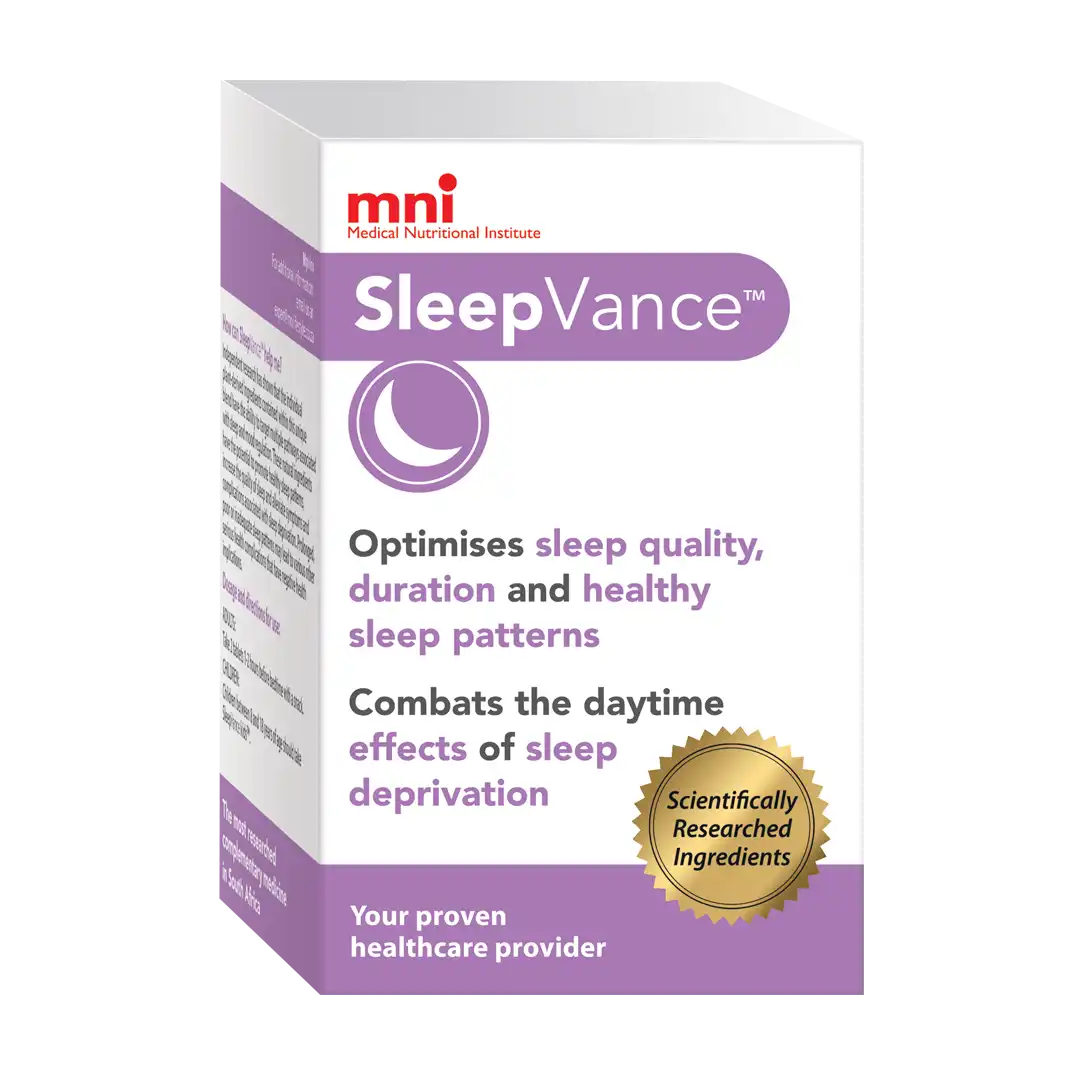Description
Natural ingredients have the potential to promote healthy sleep patterns, increase the quality of sleep, and alleviate symptoms and complications associated with sleep deprivation. Prolonged, poor, or inadequate sleep patterns may lead to various other serious health complications that have negative health implications.
The link between sleep, concentration, and mood.
Disrupted sleep may involve difficulty falling asleep, staying asleep, or an alteration in the quality of sleep. This leaves the individual feeling unrefreshed, emotionally depleted, and vulnerable to the development of various mental and physical disorders.
Packs size: 60 Tablets
Benefits: SleepVance kids can be used by kids suffering from any of the following conditions or symptoms:
- Insomnia
- Sleep apnea
- Shift workers
- Children and adults suffering from ADD and ADHD.
- Individuals with general sleep disorders
- People battling with weight loss.
In general, anyone suffering from any of the symptoms caused by sleep deprivation can benefit from using SleepVance.
Usage and directions:
Adults: Take two tablets on a daily basis 1-2 hours before bedtime with supper or a later pre-bedtime snack/drink (preferably not on an empty stomach).
Tablets may be crushed or chewed to facilitate swallowing.
Children: SleepVance contains the amino acid 5-HTP pharmaceutically registered in some countries for adult use only. SleepVance kids, a specialised teenage formulation, is better suited for children between 8 and 18 years.
Ingredients:
Valerian root extract
Extracts of the root are used for their calming effects and as a regular supplement to promote sleep.
Passionflower
Extracts of the roots and leaves, however, have a long history of use as a medicinal herb for relaxation and sedation purposes.
Inositol
Inositol is an organic food compound found in certain fruits, beans, and grains. In the brain, inositol’s neurobiological mode of action relates to the neuro-modulatory role it plays in the phosphoinositide (PI) cycle, linked to the production of the neurotransmitter’s serotonin and noradrenaline, involved in mood regulation and cognitive function.
Glycine
Glycine is an amino acid involved in neuro-protein production and neurocentral nerve transmission. Glycine has been linked to sleep promotion through its action on NMDA receptors and through enhancing glutamate sensitivity, thereby helping to reset the circadian clock.
L-Theanine
L-theanine is an amino acid naturally found in certain food especially green and black tea, and several types of mushroom. Several studies have demonstrated that L-theanine promotes relaxation and facilitates sleep.
Magnesium
Magnesium helps to calm the nervous system due to its ability to block certain brain N- MDA receptors (methyl D-aspartate), thereby inhibiting excitatory neurotransmission and thus guarding against mental overload. Inadequate magnesium levels have been linked to insomnia, anxiety, and increased pain perception (hyperalgesia).
Zinc
Zinc is a trace mineral that supports several physiological, biochemical, and neurological functions.
Vitamin D3
Optimal levels of vitamin D in the bloodstream are necessary to preserve neurological function and studies have shown that Vitamin D exerts a neuroprotective effect that helps reduce neuroinflammation, thus preserving cognitive function.
Folate (presented as L-5-methyltetrahydrofolate)
Folate is an essential micronutrient belonging to the vitamin B family and a cofactor for several neurotransmitters that play a critical role in sleep regulation, including the modulation of REM sleep quality.
Vitamin C
Individuals with recorded vitamin C deficiency often report feeling depressed and display poor sleeping patterns. Conversely, studies of hospitalised patients who frequently have lower than normal vitamin C levels have found a significant improvement in mood and sleeping patterns after receiving vitamin C supplementation.

